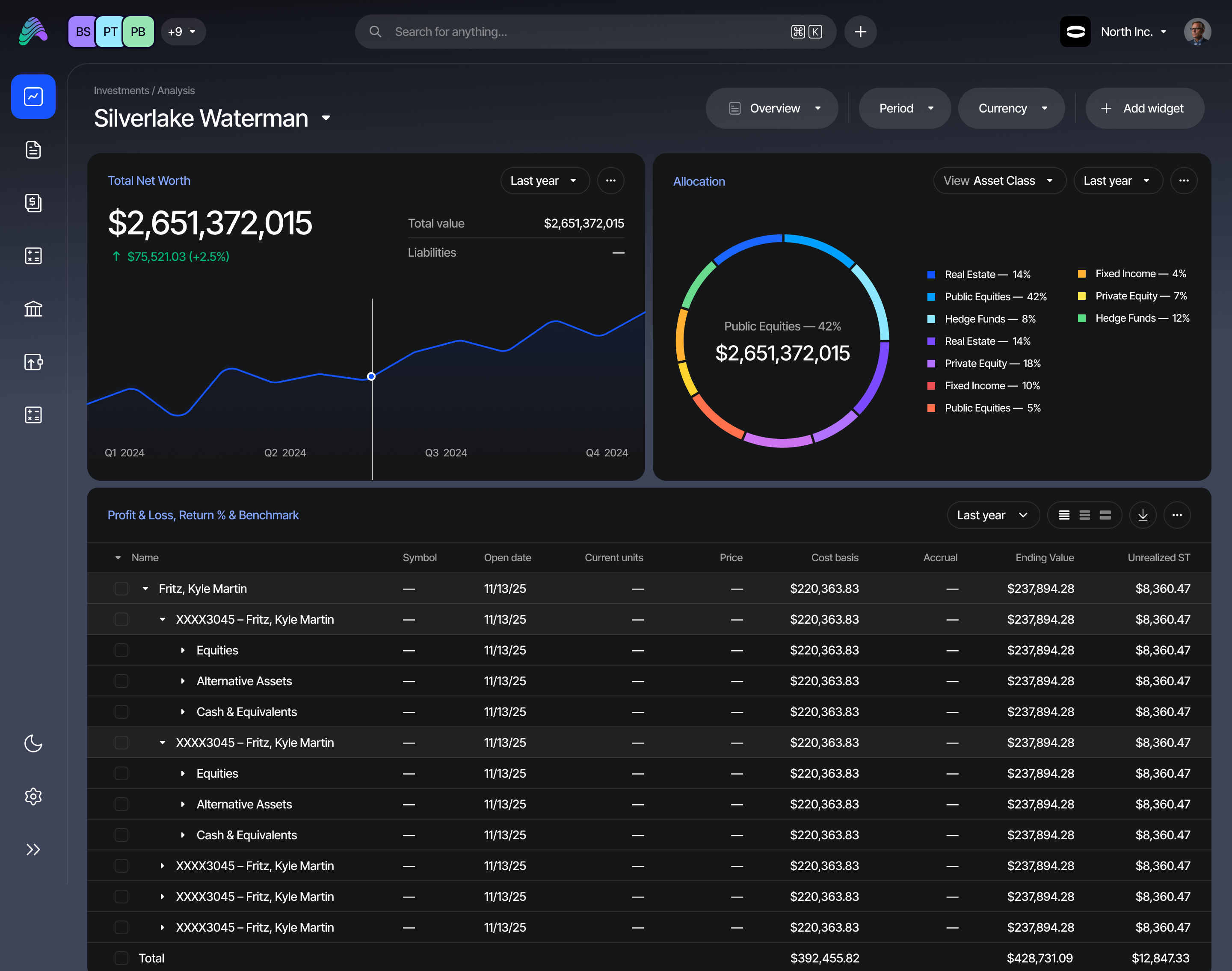How Family Offices Can Navigate Tariffs and the OBBBA
In today’s economic climate, family offices face a rare paradox: tax certainty amid trade chaos. The One Big Beautiful Bill (OBBBA), a sweeping piece of tax legislation, locks in key provisions of the 2017 tax cuts, offering long-term planning clarity for family offices. At the same time, the re-escalation of Trump-era tariffs has injected systemic risk into global markets, reshaping portfolio strategy, entity structuring, and operational decision-making.
This article outlines the key insights and strategies from Asseta AI’s strategic one-pager on the impacts of OBBBA and tariffs is designed to help family offices proactively respond, allocate capital more effectively, and preserve generational wealth.
Pillar 1: The OBBBA Opportunity – Tax Certainty as a Strategic Anchor
The OBBBA solidifies several game-changing tax incentives, including:
- A permanent estate, gift, and GST tax exemption of $15M per individual / $30M per couple, indexed for inflation
- A flat 21% corporate tax rate
- A 20% Qualified Business Income (QBI) deduction for pass-through entities
- Restored 100% bonus depreciation for domestic capital expenditures
For family offices, this permanence is a gift. It allows for long-range planning without fear of sudden legislative reversals. But certainty alone isn’t enough. It must be paired with action.
Key Opportunity Areas:
1. Wealth Transfer
Now is the time to execute large-scale wealth transfers. With the exemption locked in, family offices can move temporarily depressed assets. This strategy freezes asset values at a low point while transferring all future appreciation outside the taxable estate.
2. Asset Allocation
Stagflationary pressure (slower growth + rising inflation) threatens the traditional 60/40 stock-bond model. Offices should consider diversifying into:
- International markets
- Private investments
- Real assets (e.g., real estate, infrastructure, commodities)
These alternatives may offer better risk-adjusted returns under inflationary pressure.
3. Entity Structuring
Family offices managing global and domestic holdings should consider a hybrid entity model:
- Use C-Corps as “blockers” for high-risk or tariff-exposed international investments
- Use pass-throughs (S-Corps, Partnerships, LLCs) for stable domestic holdings to maximize QBI deductions
4. Operating Businesses
Use the savings from the new tax code to audit and upgrade supply chains. Whether that’s reshoring, nearshoring, or friend-shoring, OBBBA’s 100% bonus depreciation provides the fuel to fund these transitions.
Pillar 2: The Tariff Gauntlet
Tariffs are back in force and are more aggressive than ever:
- A universal 10% baseline tariff across the board
- Higher targeted tariffs: 30% on China, 15% on the EU
- Increased scrutiny on strategic imports and outbound capital
These shifts are strategic factors that affect portfolio construction, business valuations, and entity jurisdiction.
Key Risks from Tariffs:
▸ Supply Chain Disruption
The era of hyper-efficient global supply chains is over. Offices with exposure to manufacturing, logistics, or retail should prepare for multi-year reorientation of operations. This is capital-intensive and needs to be planned accordingly.
▸ Portfolio Volatility
Tariffs amplify systemic risk. Inflation rises. Growth slows. For many family offices, this volatility erodes the effectiveness of traditional investment models. It’s time to rethink exposure to trade-sensitive sectors and rebalance accordingly.
▸ Valuation Distortion
Family offices holding illiquid operating businesses or alternative assets must prepare for tariff-induced valuation shifts. This presents opportunities (like gifting assets at depressed values) as well as challenges (like refinancing risk).
Strategic Takeaways for Family Offices
- Act on the tax certainty OBBBA provides. Don’t wait for sunset provisions or policy shifts; execute estate plans now.
- Treat trade policy as an investment risk factor. It’s no longer just a macroeconomic concern and it directly impacts valuation, structuring, and portfolio construction.
- Recalibrate your portfolio strategy. Assume higher inflation, lower growth, and more volatility.
- Audit and adapt supply chains. Prepare to fund domestic or ally-based sourcing models using new tax incentives.
- Build with resilience in mind. The winners will be those who proactively rebalance across structure, asset class, and geography.
Disclaimer: This document is provided for informational and analytical purposes only. It reflects general market and policy observations and is not intended to provide, and should not be relied upon for, financial, investment, legal, accounting, or tax advice. Asseta AI is not a registered investment adviser, broker-dealer, or tax advisor, and does not provide personalized financial advice. Any examples, projections, or strategies discussed herein are illustrative and should not be construed as a recommendation to buy, sell, or hold any security, adopt any particular investment strategy, or take any specific action. Recipients should consult with their own qualified professional advisors before making any decisions based on the information provided. Past performance, market conditions, or policy outcomes discussed are not indicative of future results.


.svg)







.png)
%20(1).png)
.png)


.png)
